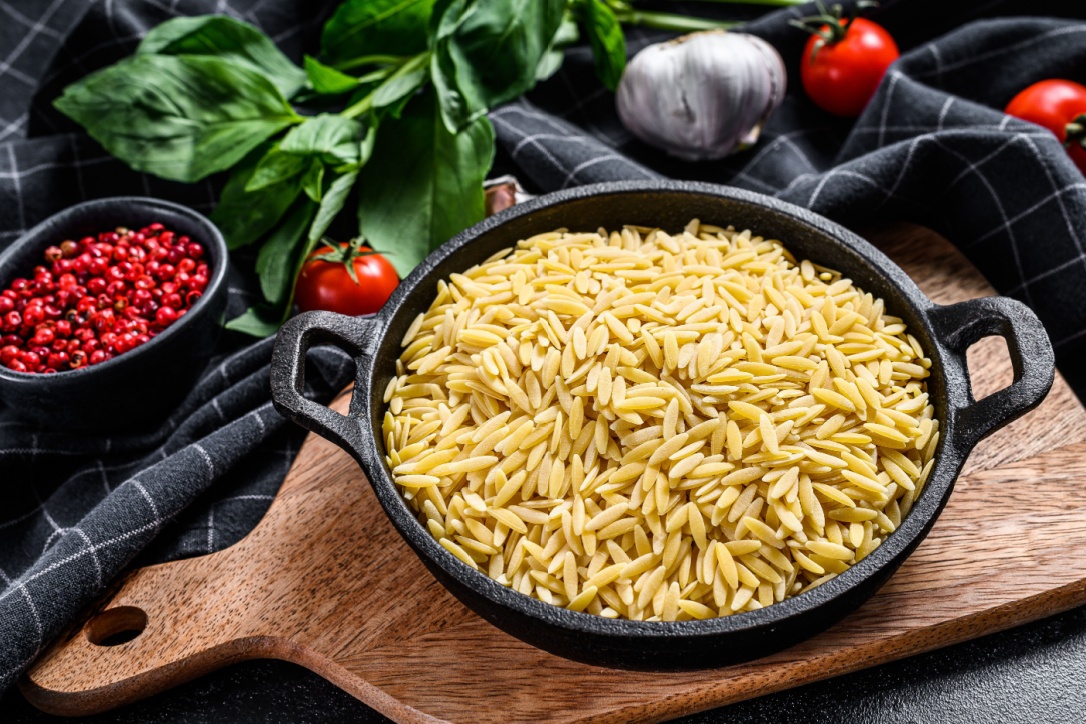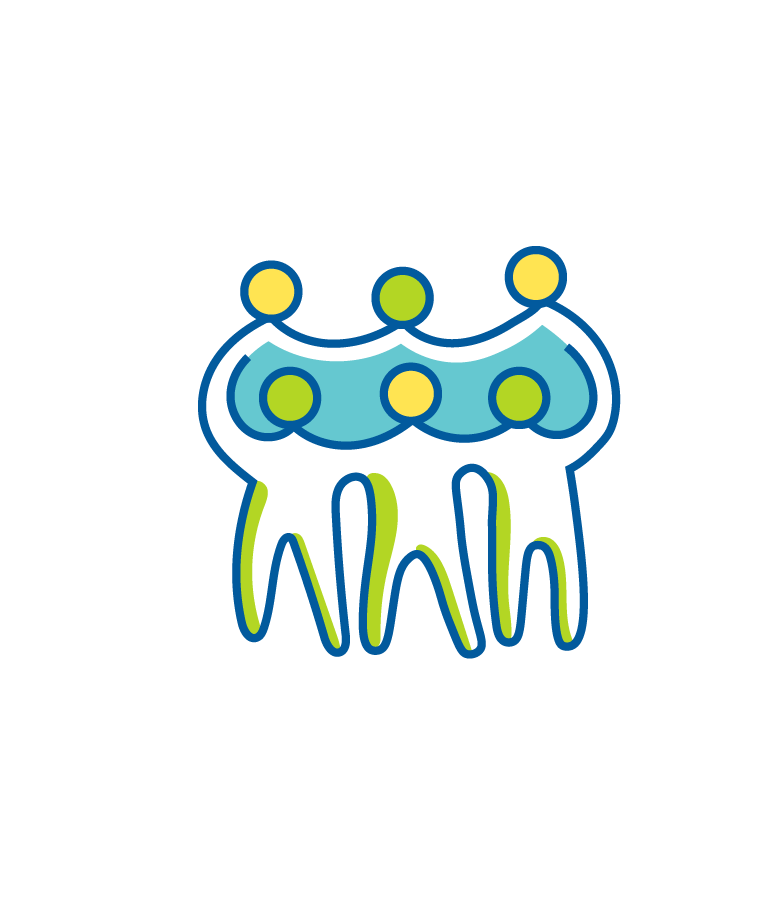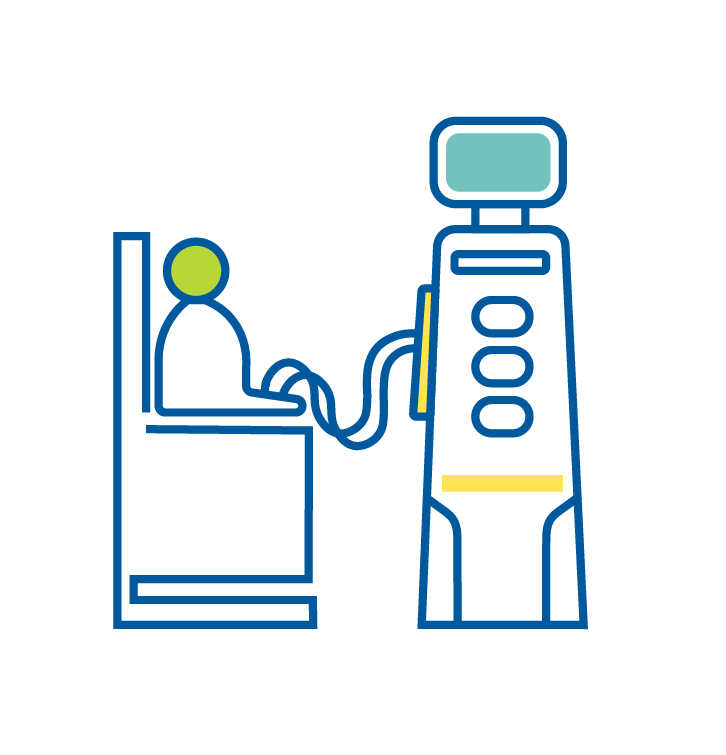Weight Management and Kidney Disease
Maintaining a healthy weight is important for managing chronic kidney disease (CKD) and for your overall health.

Obesity and kidney disease
If you have obesity or are overweight, you have a higher risk of developing kidney disease or for your kidney disease to progress. Having excess body fat can cause inflammation (swelling), which is the body’s way of reacting to stress or harm. Over time, this inflammation can damage blood vessels and make your kidneys work harder, which can lead to more kidney damage.
For people with kidney disease, being overweight or having obesity can also increase the risk of other health problems like high blood pressure, diabetes and heart disease which are all major risk factors for CKD.
Cardiovascular-kidney-metabolic (CKM) syndrome is a health condition that affects your heart, kidneys, and metabolism (how your body turns food into energy). It happens when these three parts of your body don’t work as well as they should. CKM is a newer term that experts use to explain how heart disease, kidney disease, type 2 diabetes, and obesity are all connected. When you have one of these conditions, it can make the others worse and raise your risk for serious health problems.
Benefits of Maintaining a Healthy Weight / Losing Weight
Improving how your kidneys work – especially if you have obesity and type 2 diabetes
Lowering your blood pressure and reducing strain on your kidneys

Lowering your risk of developing type 2 diabetes
Giving you more energy, helping you feel less tired, and making it easier to stay active
Work with a Dietitian
A healthy weight is different for everyone, things like your age, sex, lifestyle, family history and any medical conditions you may have can all play a role. A healthy weight is one that helps lower your risk for health problems, protects your kidneys and supports your overall well-being. Talk with your healthcare team to learn what a healthy weight means for you.
Before starting any weight loss plan or medicines, always talk with your doctor, dietitian and healthcare team. A dietitian—a food and nutrition expert—can help you create a kidney-friendly eating plan that supports weight loss while making sure you get the right nutrients and keep your lab values in a healthy range.
Nutrition
Eating for weight loss doesn’t need to be stressful and you don’t need to follow a strict or restrictive diet. Simple steps like watching your portion and serving sizes can help you manage your weight and support your kidney health. A plant-based eating pattern – which includes fruits, vegetables, whole grains and plant proteins – can help reduce inflammation and slow down kidney damage. It’s recommended to avoid extreme weight loss methods, like crash diets. These diets are hard to stick to, may harm your health and can even damage your kidneys.
Simple steps like watching your serving and portion sizes can help you manage your weight and support your kidney health. With a few small changes, many of your favorite foods can still fit into a kidney-friendly eating plan.
Medicines
Some people may benefit from a type of medicine called glucagon-like peptide-1 receptor agonists (GLP-1 RA). These medicines help manage blood glucose (sugar), support weight loss and may slow down kidney damage. In January 2025, an injectable GLP-1 RA called semaglutide (Ozempic) was approved to help reduce the risk of kidney disease getting worse in people with type 2 diabetes. These medicines work by slowing your digestion (how fast your stomach empties after you eat). This makes you feel full longer, which can help you eat less and lose weight. GLP-1 RAs may also help lower blood pressure and bad cholesterol (LDL), which can lower your risk of heart disease. Like all medicines, GLP-1 RAs can cause side effects such as nausea, vomiting, diarrhea, constipation, stomach pain, and reduced appetite. It’s important that you talk to your doctor before starting any of these medicines and if you have any side effects.
If you take a GLP-1 RA, it’s important to work with a dietitian as these medicines might make it harder to eat large meals, so you may need to eat smaller, more frequent meals. Work with a dietitian to make sure you are getting enough nutrients and protein with every meal to help protect your muscles.
Surgery
Bariatric surgery (weight loss surgery) can be a helpful option for people who have obesity and kidney disease and haven’t been able to lose weight through other methods. Weight loss surgery can help lead to improved kidney function and fewer health problems. It’s important to note that surgery isn’t a quick fix as it can lead to nutrient, vitamin and mineral deficiencies along with other complications. If you have this surgery, it’s important to work with a dietitian. Your stomach will be smaller, so you may need to eat smaller portions and choose your foods carefully. You may also need to take vitamins and supplements to keep your body healthy.
Staying Active
Staying active is a key part of managing your weight and kidney health. Aim for at least 30 minutes of moderate exercise (like walking, biking, and swimming) on most days of the week. Small changes and simple strategies can help you achieve your goals:
- Try light strength resistance exercises like wall push-ups, sit-to stands from a chair, or lifting household items like soup cans or water bottles as weights.
- Set out workout clothes in advance or the night before to save time.
- Schedule short walks during the day to make exercise a consistent part of your routine.
- Take the stairs instead of the elevator.
If you are not sure where to start when it comes to exercise, think about activities you already enjoy that involve movement. Activities like dancing, gardening, and yoga all count as physical activity. Before starting a new exercise, talk with your doctor to make sure it’s safe for you. Your doctor can suggest exercises that fit your health and ability. Your protein needs may change based on how active you are and your stage of kidney disease, talk with a dietitian to find out what’s best for you.
Transplant
Maintaining or reaching a healthy weight is a requirement of some transplant centers before being placed on a kidney transplant list. This is because being overweight or having obesity can increase the risk of problems during and after surgery, which may include:
- Slower healing after surgery
- Wound Infections near the surgical site
- Heart problems, such as high blood pressure
- Delayed graft function (when the new transplanted kidney takes longer to start working)
- Rejection of the transplanted kidney
Often times, many people gain weight after a kidney transplant as anti-rejection medicines like steroids can increase your appetite. Work with a dietitian to help you manage your weight before- and after transplant to protect your kidneys and to maintain a healthy weight.
Mental Health
Managing your weight while living with kidney disease can be both physically and emotionally challenging. You might feel tired, stressed, frustrated, or overwhelmed as you navigate lifestyle changes, dietary restrictions, and long-term health goals. These feelings are valid—and you’re not alone.
Emotional well-being plays a big role in your overall health. People with CKD are more likely to experience mental health challenges such as anxiety, depression, or emotional eating which can make it harder to stick to your goals. Here are some tips to help you stay on track:
- Set realistic goals: Progress takes time. Focus on small, manageable changes that you can keep, like adjusting portion sizes or adding a short 10-minute walk to your day.
- Celebrate progress: Even small milestones—like preparing a balanced meal or sticking to an exercise routine for a week—are important wins that build confidence and motivation.
- Practice mindful eating: Paying attention to hunger cues and emotional triggers around food can help reduce stress eating and support long-term weight management. Recognizing when emotions, not hunger, are driving eating habits is an important step. A dietitian or therapist can help develop coping strategies that work for you.
- Seek support: Managing CKD and weight doesn’t have to be a solo effort. Connecting with friends, family, or support groups can provide encouragement and accountability. Mental health professionals can also offer tools to manage stress, anxiety, or depression.
- Care for your mental health: Getting enough sleep, exercise, meditating, reading, journaling and spending time in nature can help boost your mood. If you’re struggling, talk to a mental health professional– such as a psychologist, psychiatrist, social worker, therapist, or counselor. They can offer tools to help you manage stress, anxiety, or depression. Learn more about mental health and available resources.
Nutrition
Eating for weight loss doesn’t need to be stressful and you don’t need to follow a strict or restrictive diet. Simple steps like watching your portion and serving sizes can help you manage your weight and support your kidney health. A plant-based eating pattern – which includes fruits, vegetables, whole grains and plant proteins – can help reduce inflammation and slow down kidney damage. It’s recommended to avoid extreme weight loss methods, like crash diets. These diets are hard to stick to, may harm your health and can even damage your kidneys.
Medicines
Some people may benefit from a type of medicine called glucagon-like peptide-1 receptor agonists (GLP-1 RA). These medicines help manage blood glucose (sugar), support weight loss and may slow down kidney damage. In January 2025, an injectable GLP-1 RA called semaglutide (Ozempic) was approved to help reduce the risk of kidney disease getting worse in people with type 2 diabetes. These medicines work by slowing your digestion (how fast your stomach empties after you eat). This makes you feel full longer, which can help you eat less and lose weight. GLP-1 RAs may also help lower blood pressure and bad cholesterol (LDL), which can lower your risk of heart disease. Like all medicines, GLP-1 RAs can cause side effects such as nausea, vomiting, diarrhea, constipation, stomach pain, and reduced appetite. It’s important that you talk to your healthcare provider before starting any of these medicines and if you have any side effects.
If you take a GLP-1 RA, it’s important to work with a dietitian as these medicines might make it harder to eat large meals, so you may need to eat smaller, more frequent meals. Work with a dietitian to make sure you are getting enough nutrients and protein with every meal to help protect your muscles.
Surgery
Bariatric surgery (weight loss surgery) can be a helpful option for people who have obesity and kidney disease and haven’t been able to lose weight through other methods. Weight loss surgery can help lead to improved kidney function and fewer health problems. It’s important to note that surgery isn’t a quick fix as it can lead to nutrient, vitamin and mineral deficiencies along with other complications. If you have this surgery, it’s important to work with a dietitian. Your stomach will be smaller, so you may need to eat smaller portions and choose your foods carefully. You may also need to take vitamins and supplements to keep your body healthy.
Staying Active
Staying active is a key part of managing your weight and kidney health. Aim for at least 30 minutes of moderate exercise (like walking, biking, and swimming) on most days of the week. Small changes and simple strategies can help you achieve your goals:
- Try light strength resistance exercises like wall push-ups, sit-to stands from a chair, or lifting household items like soup cans or water bottles as weights.
- Set out workout clothes in advance or the night before to save time.
- Schedule short walks during the day to make exercise a consistent part of your routine.
- Take the stairs instead of the elevator.
If you are not sure where to start when it comes to exercise, think about activities you already enjoy that involve movement. Activities like dancing, gardening, and yoga all count as physical activity. Before starting a new exercise, talk with your doctor to make sure it’s safe for you. Your doctor can suggest exercises that fit your health and ability. Your protein needs may change based on how active you are and your stage of kidney disease, talk with a dietitian to find out what’s best for you.
Transplant
Maintaining or reaching a healthy weight is a requirement of some transplant centers before being placed on a kidney transplant list. This is because being overweight or having obesity can increase the risk of problems during and after surgery, which may include:
- Slower healing after surgery
- Wound Infections near the surgical site
- Heart problems, such as high blood pressure
- Delayed graft function (when the new transplanted kidney takes longer to start working)
- Rejection of the transplanted kidney
Often times, many people gain weight after a kidney transplant as anti-rejection medicines like steroids can increase your appetite. Work with a dietitian to help you manage your weight before- and after transplant to protect your kidneys and to maintain a healthy weight.
Mental Health
Managing your weight while living with kidney disease can be both physically and emotionally challenging. You might feel tired, stressed, frustrated, or overwhelmed as you navigate lifestyle changes, dietary restrictions, and long-term health goals. These feelings are valid—and you’re not alone.
Emotional well-being plays a big role in your overall health. People with CKD are more likely to experience mental health challenges such as anxiety, depression, or emotional eating which can make it harder to stick to your goals. Here are some tips to help you stay on track:
- Set realistic goals: Progress takes time. Focus on small, manageable changes that you can keep, like adjusting portion sizes or adding a short 10-minute walk to your day.
- Celebrate progress: Even small milestones—like preparing a balanced meal or sticking to an exercise routine for a week—are important wins that build confidence and motivation.
- Practice mindful eating: Paying attention to hunger cues and emotional triggers around food can help reduce stress eating and support long-term weight management. Recognizing when emotions, not hunger, are driving eating habits is an important step. A dietitian or therapist can help develop coping strategies that work for you.
- Seek support: Managing CKD and weight doesn’t have to be a solo effort. Connecting with friends, family, or support groups can provide encouragement and accountability. Mental health professionals can also offer tools to manage stress, anxiety, or depression.
- Care for your mental health: Getting enough sleep, exercise, meditating, reading, journaling and spending time in nature can help boost your mood. If you’re struggling, talk to a mental health provider – such as a psychologist, psychiatrist, social worker, therapist, or counselor. They can offer tools to help you manage stress, anxiety, or depression. Learn more about mental health and available resources.
Managing your weight with CKD can be challenging, but you don’t have to do it alone. Working with your healthcare team – including doctors, dietitians, nurses, physician assistant, social workers and mental health providers can help you manage your CKD and address concerns you have about weight management. Together, you can create a plan that helps you maintain or lose weight safely while protecting your kidneys.
A registered dietitian (RD) can help you make these changes to your eating pattern.
Managing your weight with CKD can be challenging, but you don’t have to do it alone. Working with your healthcare team – including doctors, dietitians, nurses, physician assistant, social workers and mental health professionals can help you manage your CKD and address concerns you have about weight management. Together, you can create a plan that helps you maintain or lose weight safely while protecting your kidneys.
Your support goes further with AKF
Your donation allows AKF to support people wherever they are in their fight against kidney disease – from prevention through transplant. For more than 50 years, we have fought on all fronts for millions of people impacted by kidney disease.
Donate today to support our work





